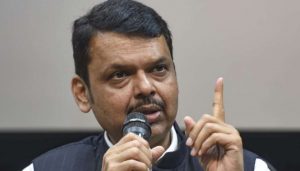Swarabhaskar unveiled from the perspective of literature, film and arts

Pune, February 7, 2021: In the second session of the musical program ‘Abhivadan’ organized on the occasion of Bharat Ratna Pt. Bhimsen Joshi’s birth centenary celebrations by Arya Sangeet Prasarak Mandal today, veterans from the field of literature, film and arts presented a diverse viewpoint on Panditji’s musical life and maintained how all the arts are connected with one another.
Prominent veterans from outside the field of music including Dr. Jabbar Patel, Senior director, Sadanand More, veteran writer, and Panditji’s son renowned artist, Jayant Joshi reminisced about Panditji during an interaction with writer, director and lyricist, Shrirang Godbole.
Sadanand More said, “Literature, Abhangas, folk music and classical music can be associated with Pt. Bhimsen Joshi’s singing. A song is derived spontaneously in man and from that folk music was born. With that, classical music came to the fore and it was built into a classical framework. But in these different genres of music, there is always an exchange of notes, which has not been studied properly till date. For instance, Balgandharva was known for drama music, but in his later days he used to sing a lot of Abhangas. So in that sense, it was Balgandharva who first sang Abhangas in a classical manner. Panditji carried on the same legacy and gave it a detailed form through ‘Abhangvani’.
Speaking on the connection between cinema, Panditji’s singing and his body language, Dr. Jabbar Patel said, “Whenever I saw Panditji singing, I felt that he had a great longing inside as if he wanted to achieve something. His inner feelings were revealed through his body language and it was a wonderful experience. There was as much aggression in his songs that while describing some of the moments, they are used as the background music in my films. Once former Chief Minister, Vasant Patil had asked me to make a documentary on people who made Maharashtra famous and I got a chance to make a documentary on Panditji. It was after that Vasant Patil got close to Panditji. I remember Panditji’s sentence that time “Riaz is Riaz and Concert is Concert. We should not do riaz in a concert. I guess this applies to all arts. ”
Jayant Joshi said, “Music is a self-contained, perfect art and one can only sing when one is immersed in it and there should be effectiveness in the song. Once you sit on the stage to perform, there is no room for improvement as you have to be perfect. Everyday bright songs would be played at our house and it was music that enabled my thoughts. My father had found his goal in life at the age of 9 and held on to it unlike me who liked different things at different stages. He used to say that the body is the instrument of the song and he took care of it that way. His songs were very practical.”






